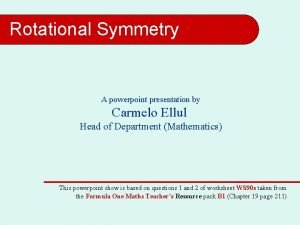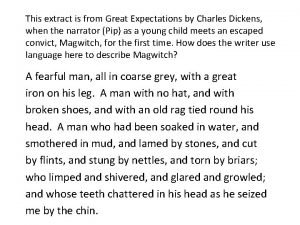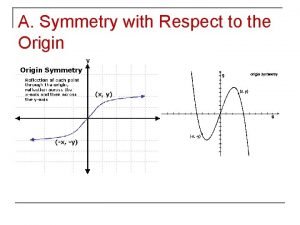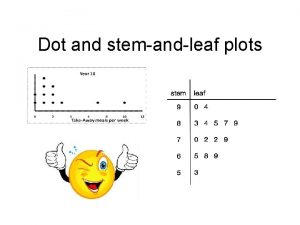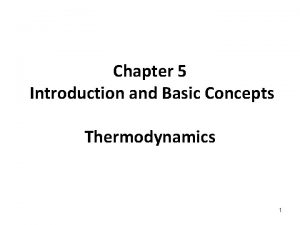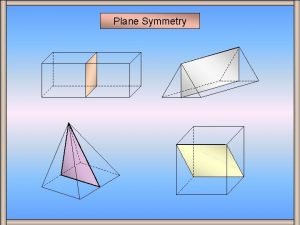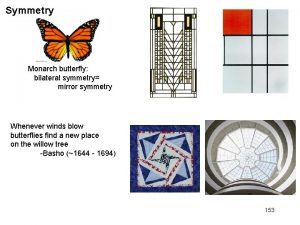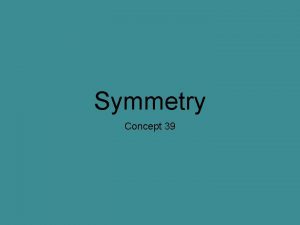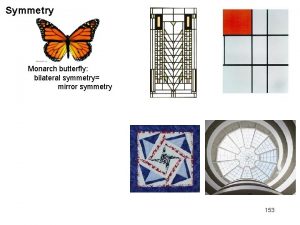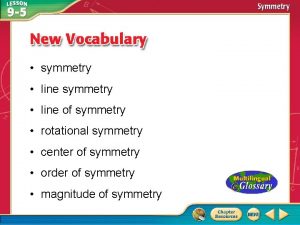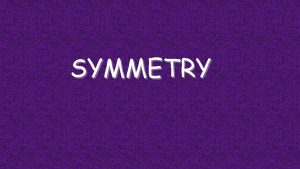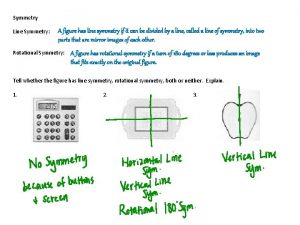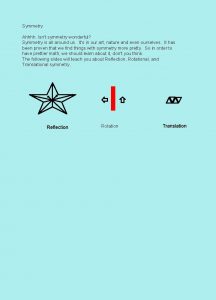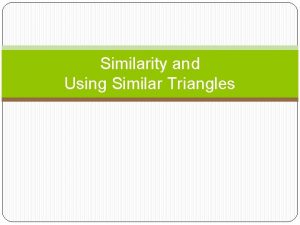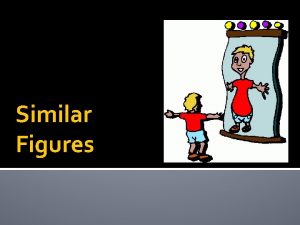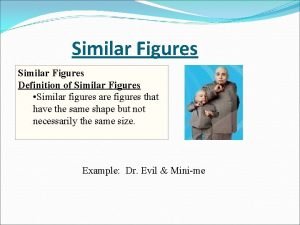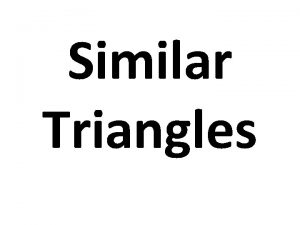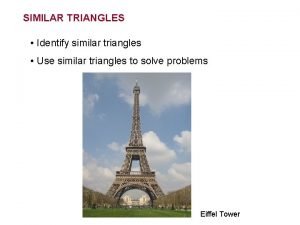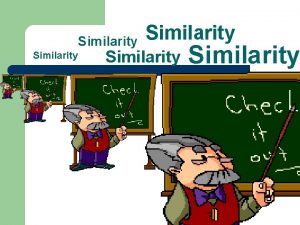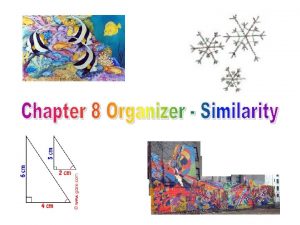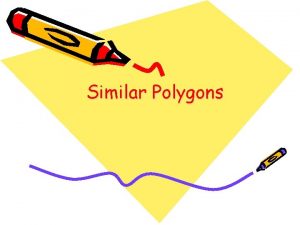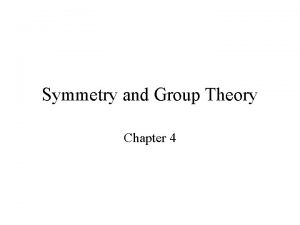Fearful Symmetry Similar and similar concepts Lila Gleitman




































![Ancient linguistics: Coordinate and Reciprocal Conjunction (Gleitman 1962) [[…x…] and […y…]] […x and y…] Ancient linguistics: Coordinate and Reciprocal Conjunction (Gleitman 1962) [[…x…] and […y…]] […x and y…]](https://slidetodoc.com/presentation_image/24567d776fa875aab1be230c3c8e2912/image-37.jpg)










- Slides: 47

Fearful Symmetry: ‘Similar” and similar concepts Lila Gleitman Henry Gleitman Carol Miller Ruth Ostrin


The semantics of symmetry For all x, y: R x, y If X is equal to matches meets Y then Y is equal to matches meets X R y, x

Is ‘similar’ a symmetrical concept? Tversky, 1977

“Assess the degree to which (a) North Korea is similar to Red China. (b) Red China is similar to North Korea. 1 Not at all 2 3 somewhat 4 5 completely

Result: North Korea is more similar to Red China than Red China is to North Korea. (just as) North Korea might be more hostile to Red China than Red China is to north Korea. QED: ‘Similar’ is an asymmetrical concept.

Some unanswered questions 1. Why are you surprised? 2. 3. “Drown is an asymmetrical concept. ”

Some unanswered questions 1. Why are you surprised? 2. “Drown is an asymmetrical concept. ” 3. 2. Is similarity just like hostility? 4. Symmetricals Asymmetricals 5. equal similar 6. match drown 7. cousin father

Although the violations of symmetry are statistically significant and experimentally reliable, the effects are relatively small. Consequently symmetry…may provide a good first approximation to similarity data…at the same time, one should not treat such a representation, useful as it might be, as an adequate psychological theory of similarity. An analogy to the measurement of physical distance illustrates the point. The knowledge that the earth is round does not prevent surveyers from using plane geometry to calculate small distances on the surface of the earth. The fact that such measurements often provide excellent approximations to the data, however, should not be taken as evidence for the flat-earth model. (Tversky & Gati, p. 97)

Some unanswered questions 3. Are there any symmetrical concepts? (a) The least of the citizens is equal to the president.

(a) The least of the citizens is equal to the president. (b) The president is equal to the least of the citizens. (a) The bicycle is near the garage. (b) The garage is near the bicycle. (a) Sam met the pope. (b) The Pope met Sam.

- Symmetrical predicates are grammatical iff: intransitive and plural; and Iff: the plural is interpreted reciprocally. - Similar is a well-behaved symmetrical predicate, one of hundreds (it satisfies these diagnostics).

The real diagnostics of symmetry - Symmetrical predicates are grammatical (1) if intransitive iff plural; and (2) that plural is interpreted reciprocally. - Similar is a well-behaved symmetrical predicate, one of hundreds (it satisfies these diagnostics). - Later, I’ll return to the apparent asymmetries in their readings.

Iff intransitive, then plural: asymmetrical 1. The man and the woman drown. symmetrical The shirt and the button match. 2. The woman drowns. ? The button matches. 3. The man drowns and the woman drowns. ? The shirt matches and the button matches. 4. The man and the woman drown each other. The shirt and the button match each other. 5. The woman drowns the man. The button matches the shirt.

Conjunction entails its conjuncts for asymmetricals but its reciprocal for asymmetricals 1. The man and the woman drown. The shirt and the button match. 2. The woman drowns. 3. 3. The man drowns and the woman drowns. 4. The man and the woman drown each other. The shirt and the button match each other. 5. The woman drowns the man. The button matches the shirt. 6. The man drowns the woman. The shirt matches the button. 1 entails 2 and 3. 1 entails 4, 5, and 6.

40 predicates rated for symmetry* Predicate T Score Equal S 4. 89 Identical S 4. 89 Marry A Match Divorce Predicate Score S 2. 44 copy A 2. 22 4. 78 safe S 2. 00 S 4. 17 hit A 1. 89 A 4. 11 bounce A 1. 67 Resemble 1. 61 S love T 4. 11 unpleasant S Meet A 4. 00 hurry A 1. 56 Similar S 3. 94 inferior S Near P 3. 94 Argue A 3. 11 drown Collide A 3. 50 better S 1. 22 Kiss A 2. 89 less S 1. 22 inside P A 1. 22 1. 28 2 groups rank order correlations: all preds rho = 9. 3; syms. = 9. 4, p >. 001)

Predicate T Score Equal S 4. 89 Identical S 4. 89 Marry A Match Divorce Predicate Score S 2. 44 copy A 2. 22 4. 78 safe S 2. 00 S 4. 17 hit A 1. 89 A 4. 11 bounce A 1. 67 Resemble 1. 61 S love T 4. 11 unpleasant S Meet A 4. 00 hurry A 1. 56 Similar S 3. 94 inferior S Near P 3. 94 Argue A 3. 11 drown Collide A 3. 50 better S 1. 22 Kiss A 2. 89 less S 1. 22 inside P A 1. 22 1. 28 (2 groups rank order correlations: all preds rho = 9. 3; syms. = 9. 4, p >. 001)

Complexity of this picture (henceforth ignored) John and Mary look alike/ are akin. They are far apart/ close together.

Which sounds better? Sam met. The frog eats. Sam and the Pope met. The frog and the flea eat. Joe took off his shoes. Joe took his shoes off. Mary ran up a hill. 1 2 Just the Same Mary ran up a bill. 3 4 somewhat different 5 totally different

(Grammatical if intransitive if plural)

How similar are these in meaning? North Korea and Red China are similar to each other. The principal and the pupil hurried each other. 1 2 3 4 completely somewhat 5 not at all

Effects of reciprocality

Yes, but how about North Korea?

How similar are these in meaning? North Korea is similar to Red China is similar to North Korea. The pupil hurried the principal. The principal hurried the pupil. North Korea and Red China are similar. Red China and North Korea are similar. The pupil and the principal hurried. The principal and the pupil hurried. 1 2 3 4 completely somewhat 5 not at all

Effects of nominal order Nondirectional Directional

Sym. Stative Symmetrical Stative Sym. Active Symmetrical Active All Asymmetrical Combined

States and Events (or acts) Accuse/? Suspect/ him of treason. He is giving/? knowing/ the answer. X is being mean/? similar to/ Y. What Joe does is give/? know/ the answer.

Causal role of the nominal pair I Figure: a moving or conceptually moveable object whose site, path, or orientation is conceived as a variable the particular value of which is the salient issue. Ground: a reference object, itself having a stationary setting within a reference frame, with respect to which the Figure’s path, etc. , is characterized.

Default figure-ground assignments cabbages and kings Drunks and lampposts North Korea and Red China 2 + 2 and 4 Sam and The Pope Your eyes and limpid pools Which would you rather say?

The asymmetry of syntactic structure… S NP the zup VP Pred NP sym the rif …maps onto conceptual asymmetry.

Causal role of the nominal pair 1. Tversky: “Which would you rather say? ” 2. 2. Kelly & Bock, 1986: Preference in conjoined nominals (marginally reproduced by us) 3. 3. Scrambling: 4. The bicycle married the garage. 5. The copy kisses the painting. 6. Preference for standard nominal order is the same in 15 of 20 comparisons (p =. 02, sign test).

Causal role of the syntax I valency: near: If there was this humungous bicycle statue in the square and this little garage on wheels going around it. meet: If my sister was more famous than Merrill Streep. basis of comparison (category): Equal: If you were talking about the heights of those presidents… Similar: If it was the weather, maybe North korea has the very best weather for a vacation.

Causal role of the syntax II: The zup is similar to the rif. The zup The Rif Older/ younger Less famous Bigger Less mobile More important Same Irrelevant

Means across subjects (1 st N = -1, 2 nd mean N= +1). t(df) = 19 Important 0. 45 7. 3*** Famous 0. 38 5. 1*** Old 0. 41 6. 3*** Big 0. 38 5. 8*** Immobile 0. 15 2. 6** ***p <. 01, ** p <. 02

Means across predicates (1 st N = -1, 2 nd mean N= +1). t(df) = 25 Important 0. 45 9. 0*** Famous 0. 36 7. 6*** Old 0. 40 8. 6*** Big 0. 37 7. 4*** Immobile 0. 20 2. 1* ***p <. 01, ** p <. 05

Two accounts of symmetry 1. Reciprocal conjunction: the expression of symmetry is syntactically derived. 2. Lexicon: Symmetry is an item-specific property.
![Ancient linguistics Coordinate and Reciprocal Conjunction Gleitman 1962 x and y x and y Ancient linguistics: Coordinate and Reciprocal Conjunction (Gleitman 1962) [[…x…] and […y…]] […x and y…]](https://slidetodoc.com/presentation_image/24567d776fa875aab1be230c3c8e2912/image-37.jpg)
Ancient linguistics: Coordinate and Reciprocal Conjunction (Gleitman 1962) [[…x…] and […y…]] […x and y…] John eats & Bill eats / John and Bill eat. [[…x. . y…] and […y…x…]] […x and y…each other…]. John pushes Bill and Bill pushes John / John and Bill push each other.

Pruning under symmetry S NP S VP V NP Recip They meet t VP V They eat

Pruning under symmetry S NP S VP NP V They meet VP V They -- L. Gleitman, 1962 eat

The reciprocal surfaces in many languages (though often identical to the reflexive)

Modern times: the symmetry is in the lexicon Where no constructional solution will do: John and Bill are cousins/fathers. Where the domain of applicability differs John and Mary kissed/kissed each other. The entailment is one way (counterexamples) John and Mary resembled/encountered. “Pruning” is in any case lexically stipulative.

The asymmetry is in the syntactic structure… S NP the zup VP Pred NP sym the rif Imposing different roles on the nominals

What this means The dominance within the categorial relationship is read off of the phrase structure tree (pace Tversky and defaults be damned). The man is tied to the tree.

The man is tied to the tree.

The tree is tied to the man

The tree is tied to the man

The Syntax Has the Last Word.
 Gleitman gross and reisberg 2011
Gleitman gross and reisberg 2011 Lila and the secret of rain
Lila and the secret of rain What is ratio
What is ratio Rotational symmetry powerpoint
Rotational symmetry powerpoint Lila normal lansia
Lila normal lansia Lila vanderbilt
Lila vanderbilt Standar lila menurut umur
Standar lila menurut umur Tipos de puertos externos
Tipos de puertos externos Four perfect pebbles by lila perl
Four perfect pebbles by lila perl Blodsvrede
Blodsvrede Rakhal lila folk dance
Rakhal lila folk dance Fleischbräunlicher schirmling
Fleischbräunlicher schirmling Destineo lila ligne 3
Destineo lila ligne 3 Lila kari
Lila kari Lila virágú borsó
Lila virágú borsó Ukuran normal lingkar lengan wanita
Ukuran normal lingkar lengan wanita Pensive doubting fearful heart
Pensive doubting fearful heart Translate romeo and juliet prologue
Translate romeo and juliet prologue Macbeth act 3 scene 1 summary
Macbeth act 3 scene 1 summary Magwitch description extract
Magwitch description extract Jason is so preoccupied with staying clean
Jason is so preoccupied with staying clean Hebrew 10:31
Hebrew 10:31 Sadie is so fearful of being overwhelmed by anxiety
Sadie is so fearful of being overwhelmed by anxiety Symmetric in respect to the origin
Symmetric in respect to the origin Similar disuelve a similar
Similar disuelve a similar Similar disuelve a similar
Similar disuelve a similar Lo similar disuelve lo similar
Lo similar disuelve lo similar Precipitancy creates prodigality
Precipitancy creates prodigality Four-model approach
Four-model approach Describe data and process modeling concepts and tools
Describe data and process modeling concepts and tools Lesson preparation siop
Lesson preparation siop How and why are places similar and different
How and why are places similar and different How are dotplots and stem-and-leaf displays similar?
How are dotplots and stem-and-leaf displays similar? General loader scheme
General loader scheme Evolution and interpretation of computer architecture
Evolution and interpretation of computer architecture Terminology and concepts
Terminology and concepts Strategy: core concepts and analytical approaches
Strategy: core concepts and analytical approaches Promotional concepts and strategies
Promotional concepts and strategies Professional nursing practice 7th edition
Professional nursing practice 7th edition Marketing creating and capturing customer value
Marketing creating and capturing customer value Introduction to genetic analysis tenth edition
Introduction to genetic analysis tenth edition Gad concepts and principles
Gad concepts and principles My ideal self example
My ideal self example Data mining concepts and techniques
Data mining concepts and techniques Data mining concepts and techniques
Data mining concepts and techniques Association analysis: basic concepts and algorithms
Association analysis: basic concepts and algorithms Concepts, techniques and models of computer programming
Concepts, techniques and models of computer programming Introduction and basic concepts of thermodynamics
Introduction and basic concepts of thermodynamics



